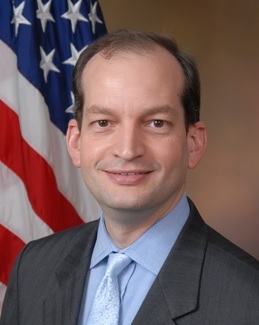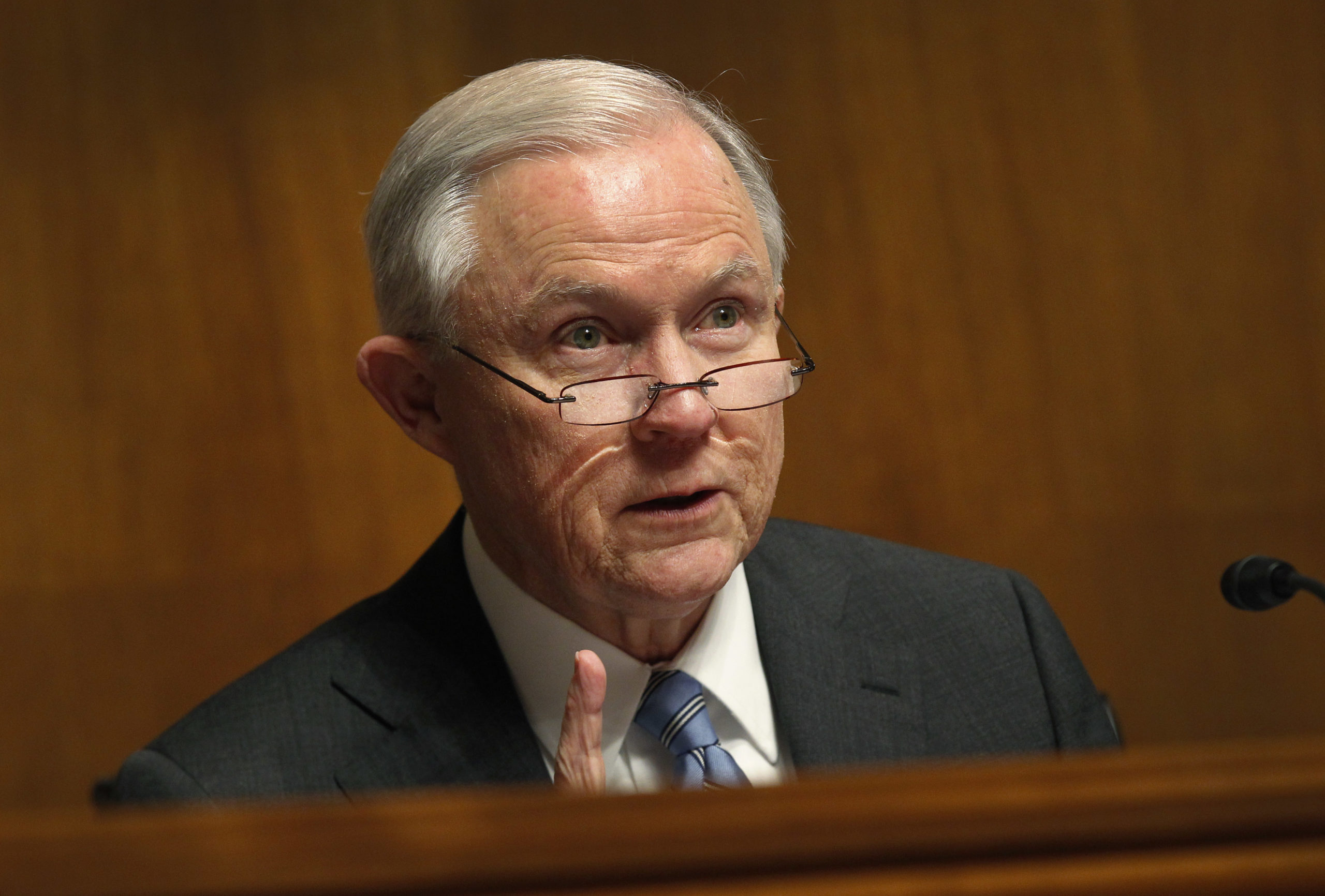Five Things You Should Know About Alex Acosta

Last Wednesday – the day before his Senate confirmation hearing — President’s Trump troubled nominee for Secretary of Labor, fast-food millionaire Andy Puzder, withdrew from consideration. Puzder’s hearing had been delayed four times over two months, during which time an endless stream of disturbing information came to light, thanks to the efforts of brave working people and their allies, demonstrating that he was unfit to lead an agency dedicated to protecting working people and enforcing laws critical to the economic security of women and families.
Trying to contain the damage, within 24 hours President Trump announced his new pick for Secretary of Labor: R. Alexander Acosta. Acosta is an attorney with strong conservative credentials and a long record of government service under President George W. Bush. Acosta was appointed by President Bush to serve on the National Labor Relations Board in 2002, led the Department of Justice’s Civil Rights Division from 2003-2005 as Assistant Attorney General, and was appointed U.S. Attorney for the Southern District of Florida in Miami in 2005. For the past several years Acosta has served as the Dean of Florida International University’s law school.
Here are five things you should know about this nominee that raise questions about his commitment to enforcing labor, employment and civil rights protections of critical importance to working people, and particularly women:
- Acosta oversaw the Department of Justice’s Civil Rights Division at a time when it engaged in highly politicized and ideological hiring.
An investigation and subsequent report by the Department of Justice’s Office of the Inspector General found that a senior official directly under Acosta’s supervision, Bradley Schlozman, violated federal law by considering political and ideological affiliations in hiring and transferring attorneys and assigning cases in the Civil Rights Division. Schlozman sought to punish attorneys with progressive views or connections to the Democratic party and elevate attorneys with conservative views or Republican party credentials. The report found that Acosta filed to exercise proper oversight; he was aware of, and did nothing to stop, Schlozman’s efforts to only consider or hire attorneys with conservative credentials, and blacklist candidates and attorneys with liberal credentials.
- Under Acosta’s leadership, the Civil Rights Division weakened its enforcement of workplace anti-discrimination laws.
During Acosta’s tenure, the number of and types of lawsuits brought by the Civil Rights Division dramatically changed. The Civil Rights Division brings lawsuits to stop unlawful discrimination in the state and local public sector. But under Acosta, the Civil Rights Division brought significantly fewer employment discrimination cases than in past Administrations; during the Bush Administration the division also moved away from filing high-impact cases challenging discriminatory policies affecting large numbers of people.
- While leading the Civil Rights Division, Acosta defended voter suppression efforts in Ohio in 2004.
During the 2004 election, Republicans in Ohio engaged in “vote caging,” a practice used to purge the voter rolls, as well as sending poll observers to challenge voters’ eligibility at polling places in predominantly African American communities. When Democrats challenged the practices in court, Acosta sent an unsolicited letter brief to the federal judge overseeing the lawsuits, arguing that state laws permitting these practices were consistent with the Voting Rights Act, as long as the challenge was not based on race.
- After graduating from law school, Acosta was a law clerk for Justice Samuel Alito, who at the time was a judge on the Third Circuit Court of Appeals.
Justice Alito’s record while on the Third Circuit demonstrated his deeply conservative judicial philosophy regarding issues of particular importance to women. Since his confirmation to the Supreme Court, Justice Alito has authored several opinions that have endangered women’s reproductive rights and undermined and limited enforcement of vital anti-discrimination protections, including those against sexual harassment.
- While Acosta was the top federal prosecutor in Florida, a billionaire hedge fund investor accused of sex crimes with underage girls avoided trial and received a lenient prison sentence.
While Acosta was the U.S. Attorney for the Southern District of Florida, his office oversaw the investigation of Jeffrey Epstein, a billionaire hedge fund investor accused of soliciting minors for prostitution. Epstein was offered a deal to avoid federal prosecution if he pled guilty to state charges of soliciting minors for sex, registered as a sex offender and paid restitution to the victims. Epstein received an 18 month sentence, of which he served 13 months in a local jail, which many considered far too light a punishment. Some of the victims subsequently brought a civil suit against the federal government, challenging the plea deal. In 2011, after he had left the U.S. Attorney’s office, Acosta wrote a letter explaining the circumstances of the case and defending the plea deal, where he discussed the overwhelming legal pressure exercised by Epstein’s defense team.
The Senate should closely examine Acosta’s record and thoroughly vet this nominee. We need a Labor Secretary committed to supporting and enforcing workplace laws vital to the economic security of women and families, including increases in the minimum wage, strong overtime protections, protection from discrimination and sexual harassment, paid family and medical leave, and paid sick days.




